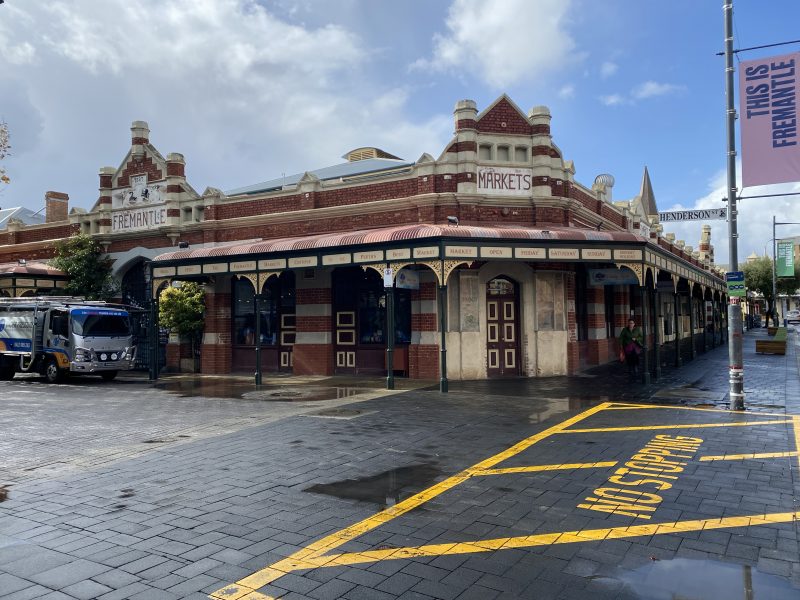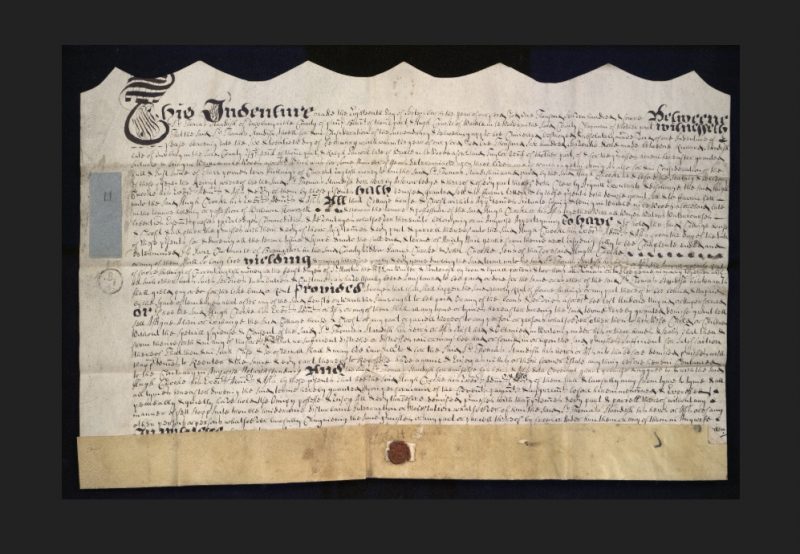To Chief Executive Officer, Fremantle City Council
FREMANTLE MARKETS BUSINESS PLAN

I am responding to the “Statewide Public Notice” which currently appears on your website inviting submissions concerning the captioned, in my capacity as a ratepayer of the district covered by the Fremantle City Council …
Executive Summary
It is my strong view that the Local Government Act, good corporate governance and commercial common sense requires any new lease, particularly for as substantial a period as 20 years, to be advertised for public tender, with a tender document that contains enforceable conditions any tender must conform with, dealing with essential commercial, operating, heritage and public hazard issues in a way which benefits the owner and the broader Fremantle community and at least satisfies legislative and community requirements. Further, full transparency should be incorporated into the process, and the lease documentation should be competently drafted in advance so that essential terms to be required and enforced can be incorporated into the tender documentation so that, for any tender to be conforming, tenderers will have to commit to them.
There has now also emerged a second, previously undisclosed issue which is about hazards in the current operations of the Markets which, as set out below, needs to be addressed immediately and in a transparent manner by the Council and by the Tenant.
Background
The Fremantle Markets lease was last entered into in 2008 and has somewhat more than 3 years to run. My original understanding, based on the distributed Business Plan, was that the Fremantle City Council decided that it needed to commence dealing with the issue well ahead of that time because of uncertainty that could be created ahead of the lease expiry. However it has now become clear (per a statement made by the CEO of the current leaseholder, Ms Natasha Atkinson at a public meeting on 11 July 2023) that the (previously undisclosed) reason for bringing the matter forward was that there were some major urgent and vital works that needed to be commenced; the tenant was unwilling to fund these, absent the proposed very long extension to its lease.
Although Ms. Atkinson asserted that the market is operating within safety regulations, it is becoming belatedly apparent that these works pertain to the safety, the amenity and the structural integrity of at least parts of the premises and in some cases, issues concerning the safety of installations or other materiel on-site. Ms Atkinson stated, whilst maintaining her safety assertion, that whatever the works are, they need to be carried out as a matter of urgency. Why, one might well ask, if there is no safety or security issue? Safety, of course, particularly public safety, is more than adhering to basic regulatory requirements.
Apparently, the FCC, as the building’s owner, either cannot, will not, or does not believe that it should carry out or be responsible for such works. In other words, it thinks that they should be carried out by the tenant of the last 44 years, a not unreasonable proposition given that most of them (and any related to public safety or the security of tenant or sub-tenant installations or relating to materiel that they have brought onto the site) would be universally regarded as tenant work in any competently drafted lease. The question is, why hasn’t the tenant carried out this work before?
It has thus become clear that the real reason for the method of disposition chosen by the Council to pursue is actually related to this problem, rather than to the 3-5 year “hiatus” that might be created by a tender, which was always impossible to credit.
These structural/repair issues that have emerged at least take the issue out of the “Alice in Wonderland” realm of the Business Plan, but do not in any way justify the approach the Council is taking to the disposition. The Council should insist that works that are properly tenant works (such as those relating to on-site installations by the tenant or sub-tenants, customer and consumer safety and other amenity) should be immediately undertaken by the tenant. It should do any necessary landlord works (for example on the building fabric) and should be able to recoup the costs, if necessary, from a new (or renewed) tenant as a part of its tender process.
Process
The Council identified two possible options under the Local Government Act to deal with the lease – either to structure a competitive tender where it could have set all the minimum required tender conditions, incorporating necessary lease conditions in the tender documentation, such as protections for existing stall holders, contribution to, and control over timing and quality of capital expenditure, maintenance and safety obligations, insurance, and other matters of importance to the safety, the revenues, the heritage and the tourism and job creating aspects of the Markets; or to enter into exclusive negotiations with the existing tenant of more than 40 years, develop a “Business Plan” based on that negotiation (which incorporates a base rental reduction given the increments that should have been applied in the existing lease) and release it for public comment prior to a new lease with that tenant.
Despite Council having never adopted any public tender process during the past more than 40 years to identify and maximise the opportunities together with the revenue and quality of product on behalf of the public it represents, and despite reported community and stallholder dissatisfaction with the existing arrangements, it (in my view wrongly) has chosen the second route of an exclusive negotiation with the existing tenant which has lead to the current submission invitation. At the Council meeting of 24 May 2023 (and, I believe, at the prior FPOL Committee meeting) where this was decided, most Councillors who spoke acknowledged and expressed confidence and support for the fact that the almost certain result will be that the lease would be renewed with the existing tenant. Several said it was the only desirable outcome. In other words, the Business Plan consultation process in their view was effectively a sham.
To be fair, it is possible that some terms could be improved upon and better defined following any genuine public consultation, if the Council exhibits the openness, strength and intelligence to do so.
Details and important considerations
According to the Business Plan, the lease over the Fremantle Markets represents both the highest value lease, and the one requiring the most short-term capital expenditure across the City’s total portfolio. In other words, it is vital for Council (and thus ratepayer) revenues and expenditures.
In preparation for the plan, the FCC obtained valuations as to the lease from a reputable valuer which showed that the proposed base rent was about $100,000 p.a. (or 18%) lower than its own valuer’s assessment of what it should be. It is also substantially lower than the current base lease obligations arising from the expressed lease increments in that lease.
One of the required criteria under the LGA – Local Government Act – for choosing the “Business Plan/consultation” route is that the premises are obtaining market rent. The Council’s own valuation shows that this is not the case, and the Business Plan identifies that it is not proposed to be the case.
The arguments adopted in the Business Plan and by most of the Councillors who spoke on the issue for not proceeding to tender would, if accepted, make it virtually impossible for there ever to be a competitive or market-testing tender, which means that the existing tenant has, effectively, captured a substantial asset of the community.
Some critical issues –
• The base rental that is proposed for the new agreement is the same as that in the 2007 agreement/business plan which was adopted in 2008 (15 years ago!) and is substantially less than the current base level payments (assuming that the provisions of the lease have been activated, which they must have been if there was proper administration of the lease). As stated above, this is less than the Council’s own valuer’s view of what the market should be (by 18%) and in that time, according to REIWA, retail rentals in Fremantle have increased on average by 2.5%/year which would take the base rate more than 30% higher. During the same period, average stall holder lease payments (i.e., the revenue the head tenant gets from its sub-tenants) have more than doubled. The base rental is the amount the landlord can legally obtain “rain, hail or shine” during the entire currency of the lease. It is not sufficient to say that the amount will be made up for by the turnover rent, which as the Business Plan itself states is variable, but has become a substantial element of the FCC receipts.
• An appendix to the Business Plan is a document entitled “Lease Essential Elements” which sets out what the Council states are the important matters to be incorporated in a future lease. These “essential elements” do not include any capital expenditure of any substance. However, in very general terms, the Business Plan text identifies an “upfront” “up-to- $3m” commitment (my highlighting) by the current tenants for (what everyone agrees are the minimum) necessary works on the premises. Given that this is a major commitment, it should surely be regarded as an “essential element” if it is to be enforced and should – at the least – eliminate the words “up to” and include the precise timing obligations. In fact, the history of the Fremantle Markets is one of frequently promised, but rarely if ever undertaken, substantial remedial work. Thus, for there to be any confidence in, and capacity for enforcement of, this expenditure and this work, it should be expected that it would be essential to include it precisely in the terms and conditions in the lease, particularly as the alternative is that the FCC (i.e., the ratepayers) will have to bear substantial costs as landlord. This is one of the major elements that one hopes can be clarified as a consequence of this consultation. Is this extra money that is being paid over to the Council or directly to contractors by the tenant and if so under whose control? Also, in terms of the quality of the work on a major heritage asset, as well as safety issues, who will supervise and approve the works?
• The identified upgrades include (for example) fire extinguishers and new electrical cabling which one would hope have been there all along, and should be regularly renewed as per regulatory requirements on all premises. It has been recently asserted in the community that the requirements and urgent works include the installation of connections to the Alinta/Atco gas pipeline system, meaning the huge numbers of LPG gas bottles can be removed from the markets. Why this was not done decades ago beggars belief.
• The described track record of the current tenant (according to the Business Plan) is a total expenditure of $370,000 on all maintenance in the past 15 years, which is about $25,000 per year or about $6 per year per square metre of leased premises. This is hardly enough to clean the premises let alone maintain them.
• The Plan talks about a difficult so-called transition period of 3-5 years if there were to be a new tenant. This is nonsense. Firstly, there is a commercial, if not a legal, imperative on the existing tenant to retain the ongoing arrangements with its stall holders for as long as possible. Secondly, if the tender documentation is correctly prepared, all areas of concern such as novation of stallholder sub-leases to the new head tenant can be addressed, also eliminating the concerns expressed at the meeting by some stallholders as to their security of tenure (which, by the way, has been far from certain for many of them during some of the past 40 years).
• If, as suggested in the media, the Council had concern that the current tenant could take steps to in some way adversely deal with existing stallholders, or to try to force or encourage them to another location, then – if they were right – the current tenancy agreement could no doubt be brought to an early end for cause. Such unacceptable behaviour, if experienced, should be grounds for exclusion from continuing to participate in the tendering process.
• A tender document can contain required terms and conditions which must, at minimum, be committed to by all tenderers for their tender to be conforming. This would also deal with some of the other concerns that have been raised about rent-free periods and the like. It can also exclude certain courses of action which would prevent antagonistic approaches by any tenderer or tenant.
• There should also be strong provisions as to the insurances that the tenant is required to take over its operations and the premises, including substantial provision for public liability, which now seems to be just as urgent as the required works.
• It should be a requirement of the lease that the tenant commits to upholding and observing Australian standards and “best practice” in relation to safety, employment and sub-tenancy issues and the rights of stallholders and employees to freely associate, including for the purpose of negotiation with the head tenant.
Early Tendering and competition
It may be that the current tenant would win a properly conducted tender. But it would do so only on much better terms and having to commit to a more rigorous agreement with enforceable undertakings of the Council’s, rather than the tenant’s, choosing.
There is no reason a tender process couldn’t begin well ahead of the lease expiry, but to apply from its expiry or earlier termination date. There is nothing to stop a new head tenant from finalizing everything so as to be able to move ahead on Day 1 of the new tenancy. Based on my experience, that is what happens in the commercial arena, if only because no tenant wants to pay rent for something that is not earning it money.
It appears from the media and the speeches made at Council that there is at least one well- resourced (in terms of both funds and experience) potential competitor for any tender. I am not arguing on their behalf. But the fact of their existence suggests that a tender process would likely be more successful than possibly the Council officers or Councillors feared. There could very well be several such offers. As set out above, competently prepared tender documentation would ensure that all the concerns as to the impact of such a process could be overcome.
Conclusion
It is my strong view, given all of the above, that it is both the legal obligation of, and the commercial imperative for, the FCC to put this substantial property disposition out to public tender. The very least that should be insisted upon is a substantially improved and documented Business Plan, and thereafter a lease incorporating all the obligations and protections, with vastly improved and enforceable terms. The second issue that has emerged concerning the presence and/or continuation of potentially hazardous activities or installations needs to be separately addressed by the Council right now! Councillors, management staff and the Council as a body corporate could be held liable for the results of any inaction.
The Fremantle Market is a major asset of the ratepayers. Its disposition should be for their primary benefit. The community and the consumers also need to be sure that it is safe and observing best practice both for obvious humanitarian reasons and for potential liabilities that could otherwise be sheeted home to the Council and thus to rates and ratepayers.
Yours sincerely,
David Parker, Ratepayer

An old English 1704 lease. They don’t make them like that any more!
WHILE YOU ARE HERE –
PLEASE HELP US TO GROW FREMANTLE SHIPPING NEWS
FSN is a reader-supported, volunteer-assisted online magazine all about Fremantle. Thanks for helping to keep FSN keeping on!
** Don’t forget to SUBSCRIBE to receive your free copy of The Weekly Edition of the Shipping News each Friday!







